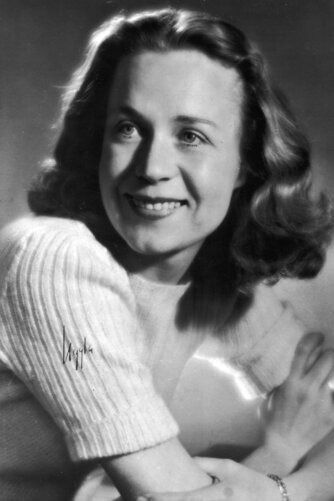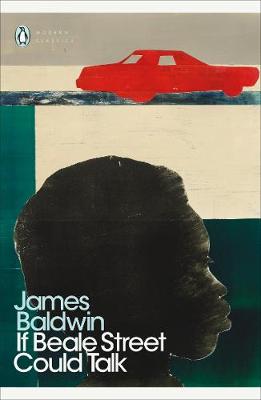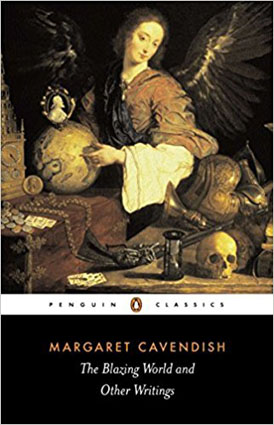E.M. Forster's “A Passage to India” was first published a century ago so it seemed like a good time to revisit this book which is consistently cited as one of the greatest novels of all time. I first read it at university but I remembered little about it. So it's been worthwhile rereading this as an adult to refresh my memory about its story and it was the February choice for my online bookclub. Naturally reading it now that I'm older I'm able to appreciate more about its ideas and themes. It was the final novel by Forster to be published in his lifetime despite the author living for almost fifty more years after its publication. His novel “Maurice” was published posthumously and he also left an incomplete novel titled “Arctic Summer”. The subject of “A Passage to India” concerns tensions between East and West in the later days of Britain's colonial rule over the Indian subcontinent. The central question of the story is whether friendship is truly possible between Indians and the English in this context. This plays out through the drama between an Indian man named Dr Aziz who meets an English woman named Adela Quested who recently arrived in India. There's a mystery or non-mystery about what happens between them on an excursion out to the fictional location of the Marabar Caves. I'll discuss more spoilers than I usually do in this post since this is an older well known book.
I found it a bit challenging to get into the book at first since it launches right into a dialogue where it's not always obvious who is speaking and it presents a wide range of people. However, I quickly became fascinated (and repelled) by so much of the talk between these characters – many of which are frank in their racial and religious prejudice. Forster completely immerses the reader in this oppressive colonial environment where interactions are regulated along strict lines. There's also a lot of humour which comes through in Dr Aziz's personality and the strategic ways he tries to navigate this society. There's also a tragic/comic absurdity to many of the outrageous statements certain characters make as well as the cross-cultural misunderstandings which arise. Since this novel is partly based on Forster's time living in India I'm sure he heard many real people making similar pronouncements.
The narrative switches between a wider discussion of India as a land, culture and nation and scenes between the story's characters. I felt like occasional generalisations and troubling comparisons felt more questionable when they were situated in sections from the authorial perspective. Forster was clearly deeply sympathetic with the struggles in Indian society but describing the country in such broad terms also feels simplistic – especially when the characterisation and drama of the story is so nuanced. One of my favourite moments in the novel is when the exhausted Dr Aziz enters a mosque and initially believes a sweet old English woman named Mrs Moore hasn't taken off her shoes. This misunderstanding could have easily erupted into a bigger fight. If the overly racist characters of Mr or Mrs Turton had this encounter I'm sure they'd have taken great offense and attacked Dr Aziz. But magnanimous and kind-hearted Mrs Moore is more eager to foster a connection than try to assert her dominance in the situation. Equally, Dr Aziz immediately overcomes his frustration and sees the potential for a possible friendship. The way in which Mrs Moore and Mr Fielding, a British headmaster of a college for Indians, interact with people says a lot about their character. So I found their fledging friendships with Dr Aziz touching. Forster shows how quickly people can find commonality when they overcome their preconceptions and initial prejudice.
There's also a moving section which describes Dr Aziz's process of mourning his wife: “He had known that she would pass from his hands and eyes, but had thought she could live in his mind, not realizing that the very fact that we have loved the dead increases their unreality, and that the more passionately we invoke them the further they recede.” This is such an interesting and heart-wrenching insight into the experience of losing a loved one. I wish Forster had shown some of Dr Aziz's interactions with his children to better understand how his present family life operates. But his grief and loss add to the reason why he might be channelling so much of his energy into impressing new arrivals from England. By creating this social connection he wants to establish a level of respectability within the constructs of this colonial society.
Adela Quested arrives in India because she's considering marrying a rather deplorable British city magistrate named Ronny who is Mrs Moore's son. Adela could be called sweetly naïve or it could be said that the way in which she wants to experience the “real” India is belittling. Like many tourists she claims to want an “authentic” experience but when what she witnesses doesn't match her imagined idea of what she'd find she's discontent. I found this line about her interaction with Dr Aziz quite significant: “In her ignorance, she regarded him as 'India', and never surmised that his outlook was limited and his method inaccurate, and that no one is India.” It feels really true that the character of a country can only be understood in the multiplicity of its inhabitants as everyone will have their own slanted perspective on it. And it's also true that whenever meeting someone from a different country or culture it's important to remember that they are merely an individual who shouldn't be taken as representative of a nation.
It's masterful the way Forster creates a slow building tension between Dr Aziz who is eager to please these English women and Adela Quested who earnestly wants to understand the country as a method for clarifying to herself whether she wants to marry Ronny. This crescendoes in their trip to the Marabar Caves. For the characters it's a trifling excursion that Dr Aziz rashly suggests when he wants to avoid the embarrassment of hosting the ladies in his humble home. They accept the invite more out of a sense of politeness because neither Miss Quested or Mrs Moore are very enthusiastic about it – especially when no one can explain why the caves are significant or worthy of a trip. From this rather tedious and dutiful journey emerges a crisis which brings to a head all the simmering conflict caused by the untenable existing colonial system. The accusation which emerges from it and Dr Aziz's arrest are truly shocking. But it's also perfectly understandable that such an incident would occur when there is so much cross-cultural tension brought about by an imbalance of power. Such pressure leads to paranoia and clashes where oppressed people are further victimised. The racist white colonial inhabitants seize upon this accusation as an excuse to act out the anger and frustration they have against Indians.
Just as the story takes a surprising turn, the immediate drama is quickly deflated. This is quite a daring thing for a novel to do in terms of its plot because such a turnaround would appear to dispel any tension. But it seemed to me that the tension only mounted as the characters were left wondering about the significance of this event and their relationships to each other. It also emphasizes the sentiment that India should become an independent nation. The mystery of the story isn't about whether Dr Aziz is guilty or not because it's always clear he's innocent. The real mystery is why honest connections and true friendship between people from these two different nations is impossible in this context. The answer Forster seems to present is that wider divisions don't necessarily exist due to racism (although there aren't certainly some extremely racist characters in this book) but because of economic, political and social conflicts brought about by the colonial system.
The character of Fielding did his best to mount a defence for Dr Aziz but if Adela hadn't spoken up it seems doubtful Aziz would have been cleared. Even if he was judged innocent his reputation would be tarnished – as indeed it was regardless of his unquestionable innocence. Although I'm critical of Adela it does feel like she was brave to own up to the fact she didn't think Aziz had tried to attack her after all. This leaves her totally isolated as racist Mrs Turton is naturally furious (and her embarrassment in court is very funny) but Mrs Moore is also unprepared to engage with Adela anymore. Forster writers of Adela: “She was no longer examining life but being examined by it. She had become a real person.” So Adela feels to me like someone who means well but then realises how good intentions really have little value when she hasn't dealt with her own unacknowledged prejudices and isn't prepared to embrace the true complexity of the world.
Adela is haunted by an echo after her time in the cave as if it were her conscience pestering her. Mrs Moore also hears an echo but has a very different reaction to it because she experiences it as a crisis of faith. It results in a malaise when she realises her essential belief in goodness and Christianity can't stand up to the insidious divisions of the real world. We learn of her sad fate but she'd already withdrawn from trying to forge connections with others or engage in any of these social issues anymore. Though this is tragic it's perhaps hopeful that we later learn her children other than Ronny travel to India and develop a real appreciation for Hinduism and India's culture. The echo (being one of the main symbols of the novel) seems to have defeated Mrs Moore. Personally, I took the echo to mean that individuals are trapped in their own limited understanding of the world. It's a kind of opposite of a wasp which in this novel symbolises global unity. In the echo people are hopelessly divided. This gets at the central question posed in the first section of the novel if there can be true friendships between Indians and the English.
On this point, the friendship or attempted friendship between Dr Aziz and Mr Fielding seems to be crucial. There's a misunderstanding where Dr Aziz believes Fielding has wedded Ms Quested which naturally leaves him feeling betrayed and amplifies his belief he's been cheated out of the monetary reparations owed to him. But, more than that, there's a divide between them because of status and certain assumptions they make about each other due to nationality, religion and race. Forster amplifies it to such a degree as to state that the landscape itself comes between them. It's suggested the colonial situation creates too wide a gulf between people to allow any true connection to come forth. It's unsurprising that Dr Aziz becomes completely jaded towards the English and wants to reject them entirely (including Fielding) after the humiliation and damage of being accused as he was. However, Fielding also seems to be stuck in his own prerequisite for how he believes India should be ordered as is evidenced by his view of Venice which he contrasts to India. The fact that they aren't able to find any true connection is the great tragedy of this novel.
Alongside following the last meeting between this pair of characters, the final section is concerned with a Hindu festival – which is interesting knowing that Forster found the religion so compelling during his trips to India. To me this conclusion is making multiple points: that foreigners can never fully understand the experience of being Indian and that the traditions and culture of the country is ultimately stronger than any colonial power that tries to dominant it. However, I appreciate that this final section can feel somewhat meandering after such a character driven story.
Overall, I was very impressed with the novel in handling and honestly portraying such a complex society. Certainly Forster was writing from a certain background and his own generalisations about India and its people can be scrutinized in the narrative. But I believe this book was more intended to highlight the levels of prejudice and misunderstandings which exist in everyone and how this has led to an incredibly difficult situation in a colonized country where Britain imposed its values and forced its dominance over India. Naturally the novel can't offer a solution to these dilemmas but instead presents them in all their complexity. I loved how Forster follows the nuance of his primary characters' emotions as they mature but don't always progress. It's fascinating how each of the characters struggle with their own sense of morality in a colonial system filled with racial and religious tension. In a way the characters of Ronny and Fielding are opposite in that they've both worked for an extended period of time in the country but they interact with it and its citizens in very different ways. Forster shows how people can become trapped in certain frames of mind which create divisions that cannot be traversed. However, he also shows there can be great beauty when there are true connections – even if they only occur in fleeting moments.
It's been wonderful revisiting “A Passage to India” and I'd also highly recommend reading Damon Galgut's “Arctic Summer” which fictionally reimagines Forster's life including around the writing/publication of “A Passage to India”. I think it's a brilliant and moving novel, but I also have a penchant for novels about novelists. Additionally I watched David Lean's film version of 'A Passage to India' for the first time which was quite interesting despite being very long. It received many Academy Award nominations and it's fairly good – especially the cinematography which is spectacular. It's a shame the story is more immediately concerned with following Adela rather than Aziz and the ending is much more simplified (like a typical happy Hollywood ending.) It's also very unfortunate that Alec Guinness portrays the Indian character of Professor Godbole. But many scenes and lines from the book are faithfully portrayed and it's compelling how it visually shows many of the tensions raised in the novel.
If you're a Forster fan I'd be keen to know where you think this ranks amongst his books. I've read most of his work and I think I prefer “A Room with a View” although “A Passage to India” is more ambitious and impressive in handling such a large subject.















